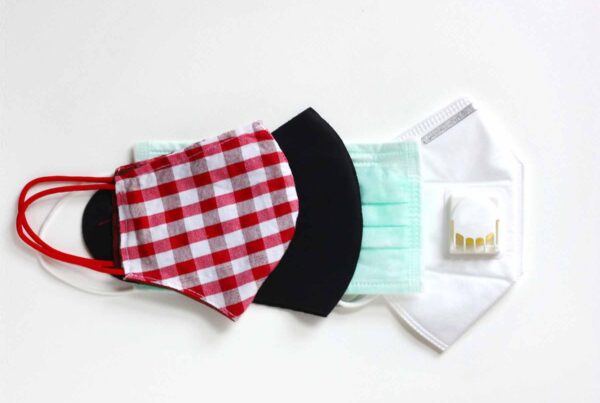A study found prolonged mask-wearing–specifically, the prolonged use of N95 masks–negatively affected hospital workers, causing headaches, acne and skin breakdown, and impaired cognition.
As the pandemic rages on, it continues to take a psychological, emotional, and physical toll on frontline healthcare workers. Alongside the circumstances which make long hospital hours stressful and taxing under normal circumstances, the continual need for personal protective equipment (PPE) to protect from infection of COVID-19 adds its own set of challenges.
The Toll of Prolonged Mask-Wearing
According to the Centers for Disease Control and Prevention (CDC), wearing N95 masks continuously can increase blood CO2 levels after only one hour of use if a healthcare worker does not have an opportunity to take a break from wearing it. This can lead to adverse health effects such as headache, increased skull pressure, reduced cognition, increased or labored breathing, cardiovascular effects, and reduced workload tolerance.
These effects can compound, especially when healthcare workers endure up to 8-12 hour-long shifts. These effects are more than just theoretical. In a study conducted in the Journal of Infectious Diseases and Epidemiology surveying 343 New York City hospital workers, 314 respondents reported adverse effects from prolonged mask use — the participants complained of headaches, acne and skin breakdown, and impaired cognition.
Increasing the Supply of N95 masks
Fortunately, preventing these adverse effects is as simple as taking a break to remove one’s mask, taking a few recovery breaths, and getting back to work. However, hospitals can often become too busy or understaffed to allow for such breaks. And more importantly, the most prominent reason these adverse effects remain is that healthcare workers don’t have enough PPE to replace their masks when they take them off.
If a healthcare worker has been in close contact with infectious COVID-19 patients, especially during aerosol-producing procedures, it is not safe for them to remove a mask and put the same one back on. However, many healthcare workers are only allotted one mask per shift, forcing them to choose between taking PPE breaks and risking self-contamination or enduring these adverse health effects from wearing a facepiece respirator continuously for hours.
With all the responsibility, hard work, and strain that healthcare workers continue to take on to treat COVID-19 patients, increasing PPE supply availability and abstaining from purchasing medical-grade N95 respirators are two ways we can support these workers. As the nonmedical public, we must continue to wear masks and observe social distancing measures. However, N95s are only necessary for healthcare workers who must be in close contact with COVID-19 patients every day. Wearing other masks — such as cloth masks or KN95 masks — will still keep average people safe while reserving N95s for those who need them most.
With an adequate supply of N95s, healthcare workers would be able to take PPE breaks as needed and prevent adverse health effects that are inherent to wearing a mask for such a prolonged period of time.




